The Department of Communication, University of Hyderabad (UoH), India, and the International Institute of Information Technology (IIIT), Hyderabad, is organising a one-day symposium on the theme “Constructing the Digital: Working from the Global South” to be held on April 13, 2024, in Hyderabad.
This Association of Internet Researchers (AoIR) Flashpoint Symposium will explore forms and structures of labour contributing to digital infrastructures, content, and systems, and presents an extensive opportunity for emerging and senior scholars, members of the digital/platform labour rights advocacy and activist community in the region to connect around critical questions related to the theme.
In addition to two keynote panels, this one-day symposium will feature three thematic panels dealing with the labour behind the construction of the digital—as platform, infrastructure, device, content, environment, or medium, with particular emphasis on experiences and perspectives from underrepresented groups.
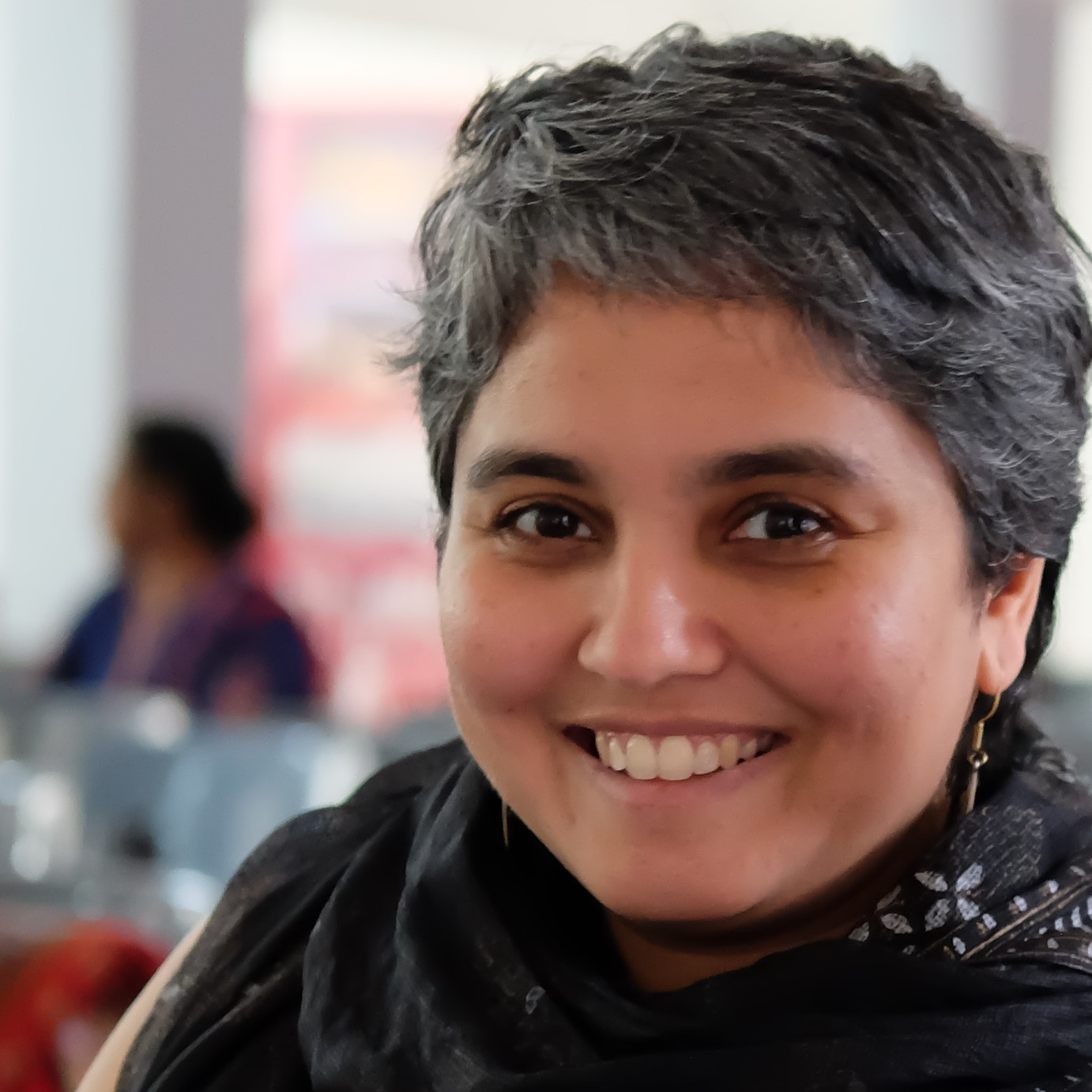
Janaki Srinivasan’s research examines the political economy of information technology-based development initiatives. She uses ethnographic research to examine how gender, caste and class shape the use of such technologies. Her work has explored these interests in the context of Indian digital inclusion initiatives focussed on community computer centres, mobile phones, identity systems and open information systems. Currently, she is exploring privacy, algorithmic control and the role of intermediaries in digital transactions, with an emphasis on the domains of financial inclusion and work automation.

Pradip Thomas is a leading academic and renowned author in the areas of communication and social change, communication rights, religion and media and the political economy of communications in India.
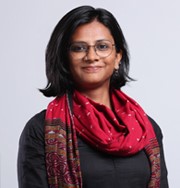
Gayatri Nair is Assistant Professor of Sociology, at the Department of Social Sciences and Humanities, Indraprastha Institute of Information Technology Delhi, India. Her research interests lie in urban informal labour with an emphasis on the question of caste, gender and technology. With a focus on political economy, she has published work that interrogates the role of caste and gender in shaping ‘traditional’ livelihoods and new forms of work specifically platform-based gig work; also detailing how workers organise. This work has appeared in journals such as Contemporary South Asia, Journal of South Asian Development and the Sociological Bulletin. Her recent book is 'Set Adrift; Capitalist Transformations and Community Politics Along Mumbai's Shore’ published by the Oxford University Press (2021).
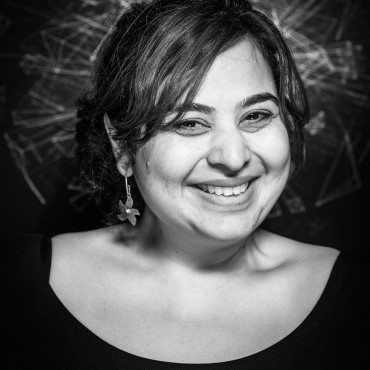
Dr Padmini Ray Murray is a feminist designer, researcher and maker whose practice focuses on challenging acts of infrastructural and algorithmic violence by creating alternative digital spaces and imaginations. She founded Design Beku in 2018: a collective of researchers, technologists and designers who work towards making design and digital practice more locally rooted, contextually relevant and ethical.
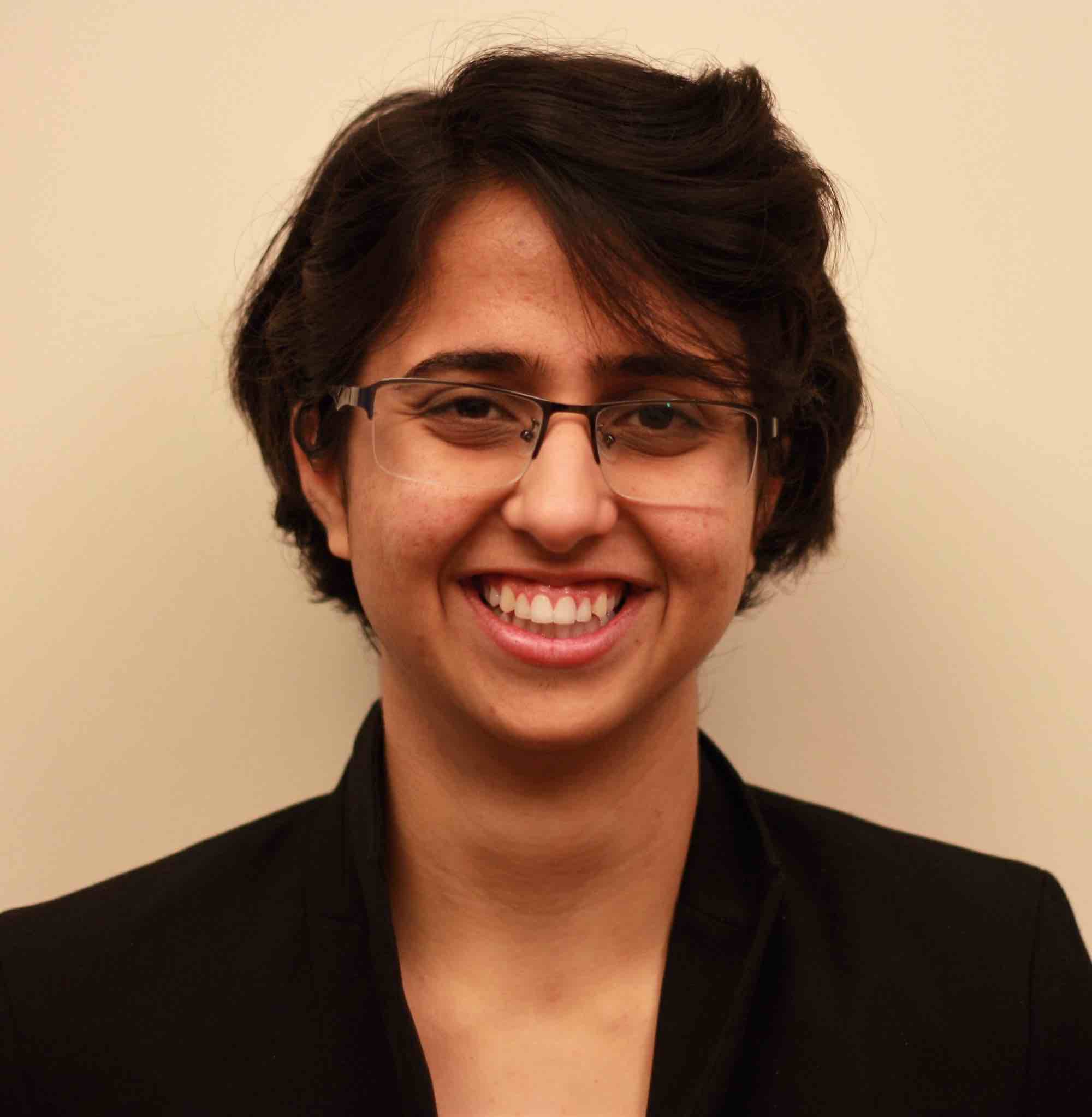
Tarunima is the research lead and co-founder of Tattle which builds citizen centric tools and datasets to respond to inaccurate and harmful content in India. Through Tattle, she focuses on the unique challenges of addressing inaccurate and harmful information in India and the Global South. Her broader research interests are in the intersection of technology, policy and global development. As a practitioner, she has worked on ICTD and Data driven development projects with non-profits and tech companies in Asia and the United States.
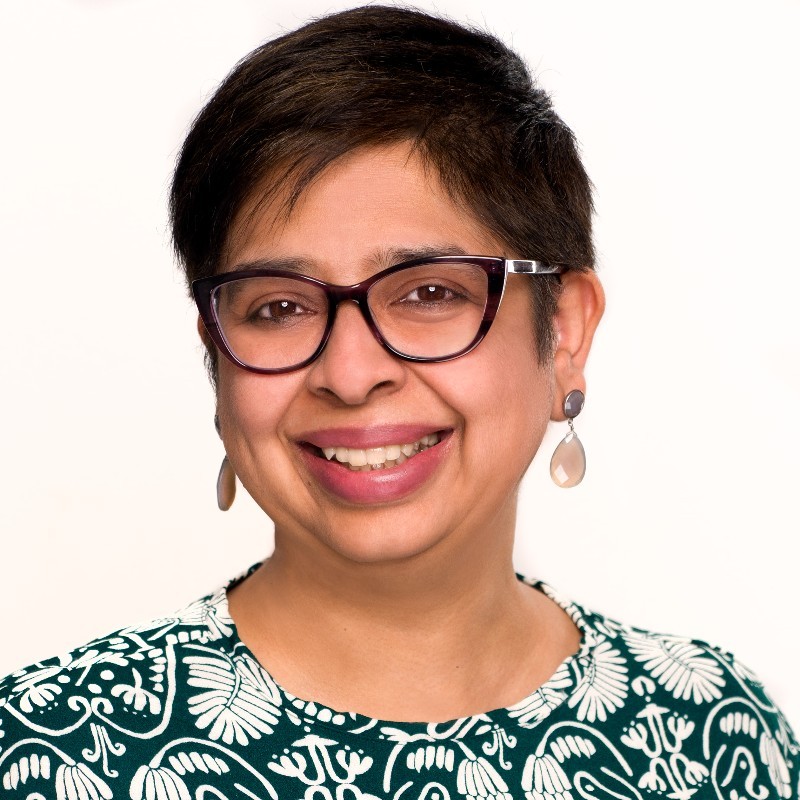
She is the founder and editor of BehanBox, an independent digital media startup for gender journalism in 2019. With over 4 year experience as an Independent journalist prior to starting BehanBox, she has written in-depth articles on gender, political participation of women ,agrarian distress, migration, climate change and other issues for leading digital publications like IndiaSpend and Scroll. Previously, she had worked as governance and public policy specialist in global organisations like ActionAid, Oxfam and the World Wide Web Foundation.
| Time | Panel/Theme | Speakers |
|---|---|---|
| 9:30 - 10:00 am | Introductions | |
| 10:00 – 10:45 am | Keynote Panel 1Training a critical eye on Digital India–what it means for work and workers |
Pradip Thomas Gayatri Nair Janaki Srinivasan Chair: Nimmi Rangaswamy |
| 10:45 – 11:00 am | TEA BREAK | |
| 11:00 - 12:30 pm |
Paper presentations 1 Making the platform: Visibilising creators, mobilisations, and communities Discussant: Janaki Srinivasan |
|
| Decoding the Meta: A search for democracy in Gaming Capitalism | Aditya Deshbandhu | |
| Digital “care heroics”: platformized carework, voluntary labor, and urban entrepreneurialism during COVID-19 | Anushree Gupta | |
| Domesticating the Digital: Tracing ‘Penkoottu’ (Women for Each Other) Movement’s Negotiations with WhatsApp in Organising Resistance for Women Workers’ Rights | Anila Backer A P | |
| To let content be or not be: Understanding decision making process of content moderators on social media platforms in India | Tania Chatterjee | |
| The e-Shram Initiative: Lessons from Delhi's Digital Registry for Informal Workers | Shalaka | |
| 12:30 – 1:30 pm | LUNCH | |
| 1:30 – 3:00 pm |
Paper presentations 2 Relational identities in the workplace: Individualisation and collectivisation Discussant: Padmini Ray Murray |
|
| Fostering Digital Inclusion: The Significance of Women's Enterprise Support Systems for Informal Women Workers' Cooperatives | Semanti Chakladar and Palak Gadhiya | |
| Remaking Domestic Labour: Intersecting Identities and the Design of Digital Platforms | Sohini Banerjee | |
| Crafting identities in platform work: interactions and (dis)identification among food delivery riders | Stella Kyratzi (online) | |
| Redoing the Demos: Digital Interfaces and the Making of Engaged Human Capital | Thomson C S | |
| Labour infrastructures beyond the ‘app’: Intermediaries of work organisation and control within taxi platform work in India | Nishkala Sekhar | |
| 3:00 – 4:30 pm |
Paper presentations 3 Beyond the machinery: The platform as a site of cultural performances and assertions Discussant: Pradip Thomas |
|
| Exploring the Visibility of Peripheral Regional Content Creators in India | Puwati Dutta | |
|
Newspeople or nuisance? Examining social media news and ‘Facebook Journalism’ in Kashmir |
Gowhar Farooq | |
| Traditional Baul-Fakiri Songs on YouTube: Some Reflections on Folk Culture, Digital Media, and Local Music Industry from the Field | Spandita Das | |
| An analysis of the impact of AI Integration on Authenticity and Creativity in Carnatic Music | Srivaralaxmi V and Dr Uma Maheshwari P | |
| Being an ‘ICHINA’ Online – Everyday Discursive (Re)production of Internet-Mediated Chinese National Identity in the Era of Consumerism and Fandom | Zhiwei Wang | |
| 4:30 – 4:45 pm | TEA BREAK | |
| 4:45 – 5:30 pm | Keynote panel 2Towards a more just and fair Internet: working through design, code, and content |
Padmini Ray Murray Tarunima Prabhakar Bhanupriya Rao Chair: Usha Raman |
| 5:30 - 6:00 pm | Closing remarks - Future directions: An AI-driven Internet and what it means for digital labour |
Invited interventions Closing remarks |
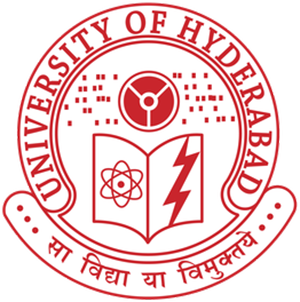
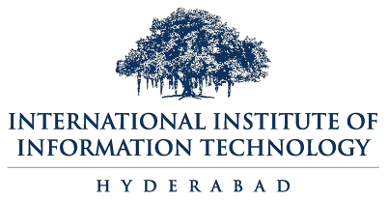
Usha Raman (Co-Chair) is a professor in the Department of Communication, UoH, and has been a member of AoIR for over five years, contributing as a reviewer for the annual conference for much of this time. She is currently co Vice President of IAMCR.
Nimmi Rangaswami (Co-Chair) is a professor at the Kohli Centre for Intelligent Systems, IIIT-H, who has participated in AoIR in earlier years, during her tenure at Microsoft Research India.
Anuja Premika is a PhD Candidate at the University of Hyderabad, working in the areas of digital cultures, feminist media studies, and influencer culture.
Chinar Mehta is a PhD Candidate at the University of Hyderabad, broadly working in feminist science & technology studies and digital cultures research.
Manisha Madapathi is a PhD Candidate at the University of Hyderabad, researching in the field of internet infrastructure studies.
Rahul Garg is a Masters Research student at IIIT Hyderabad and working on the HCI of ‘gaming’ labour and its discontents.
Please write to aoirhyd24@gmail.com for any questions.